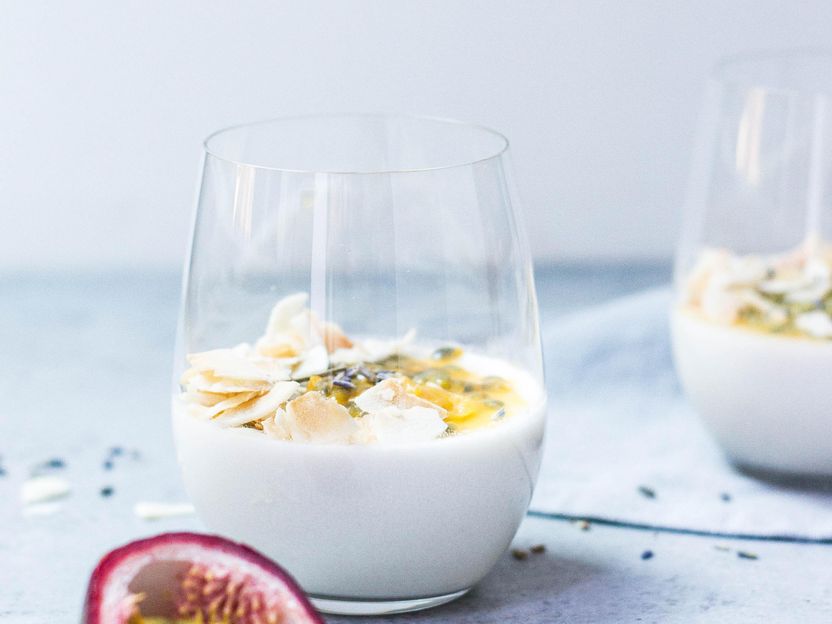Health claims and flavour innovation can boost consumption in India's yogurt category
Traditionally, homemade yogurt is consumed as part of most meals and snacks in Indian households and it seems the tradition of making it at home is alive and well as Mintel research reveals that almost three in four Indians (71%) have had fresh/homemade yogurt in the past six months and over three in five (64%) have had fresh/homemade yogurt drinks in the same time span.

Photo by Alison Marras on Unsplash
But when it comes to packaged yogurt/yogurt drinks, the overall consumer sentiment is that they lack authenticity and traditional taste, and that they are not healthy. According to Mintel research, one in five (20%) Indians say that homemade yogurt is healthier than packaged yogurt; and the same number think that packaged yogurt drinks don’t have the authentic homemade taste.
Natasha Kumar, Food and Drink Analyst, India said: “The popularity of homemade yogurt in India is undeniable with the majority of consumers preferring homemade options to what’s available in the stores. However, packaged yogurt and yogurt drinks have gained ground over the past few years. The biggest opportunities for packaged yogurt brands to capitalise on in order to increase consumption frequency lie in promoting traditional taste profiles and messages that communicate the product’s health benefits. To find success in the market, it is crucial for companies in the yogurt and yogurt drinks space to provide benefits and flavours that consumers cannot get from their homemade versions.”
Accentuating the health benefits of packaged yogurt
Indians are becoming increasingly health-conscious and are trying to take steps to achieve better overall wellness. This presents an opportunity for brands to leverage the trend by playing up health claims like digestive health, the inclusion of probiotics, and added protein.
What’s more, Mintel Global New Products Database (GNPD) highlights that only 15% of yogurt and yogurt drink products launched in India between January and December 2019 claimed that they are fermented, only 4% carried a digestive claim, and no such launches carried a probiotic claim in the same time period.
With the outbreak of COVID-19, consumers’ expectations in terms of health benefits from food and drink products will undoubtedly change, especially around immunity. Currently, Mintel GNPD highlights that only 2% of yogurt and yogurt drink products launched in India between January and December 2019 carried a functional-immunity claim.
“In order to break the consumption barrier, show added value, and create brand differentiation, it is important for yogurt brands to play-up product health claims. There is scope for introducing more such claims to build on the health halo of the category. Not only will this lead to better brand equity but also build a case for why consumers should opt for packaged yogurt and yogurt drinks over homemade versions.
“It is crucial for brands to highlight the reformulation efforts they have made to improve the nutritional profile of their products and the traditional techniques used to ferment and produce the yogurt. Furthermore, it is important for brands to communicate the importance of various health benefits like fermentation - and its link to digestive and gut health - as well as immunity-supporting ingredients. With consumers more tuned into their overall wellness given concerns related to the global COVID-19 pandemic, they are looking to brands to help them make better choices for their health and safety. For yogurt brands, this presents an opportunity to communicate the immunity-support their products can offer.” added Natasha.
Consumers want sweet and innovative flavours
Finally, it seems Indians are looking to indulge themselves with sweetened yogurt variants. While sweetening yogurt may seem counter-intuitive in some parts of the world, Mintel research highlights that over two in five (41%) Indian consumers say that they consume yogurt with sugar.
For almost half (48%) of consumers, taste is the top factor they look for when choosing packaged yogurt. However, among the 25% of consumers who claim to eat flavoured yogurt, 14% say there are not many flavours available and 16% of consumers of packaged yogurt drinks say there are not many varieties available. Thus, brands have an opportunity to offer new and innovative flavours to increase interest and purchases.
“Consumers’ love for sweetened yogurts presents a lucrative opportunity for brands to consider, possibly by introducing small packs of sugar-sweetened yogurt, or, even better, varieties with natural sweeteners like jaggery and honey to give a 'healthy' or 'natural' angle. Brands can introduce more fruit-based flavours in packaged flavoured yogurt to appeal to consumers and can take inspiration from familiar flavours like chocolate, lemon and honey, that consumers have consumed in other forms, like flavoured milk and desserts.”
“Similarly for yogurt drink, brands can explore hyper-local flavours, and offer flavour profiles that Indians are comfortable with. For example, regional buttermilk and lassi recipes can be explored, and brands can offer such products in regions where they will be a novelty. Enhancing taste through flavour can also help induce trial among those consumers who prefer the taste of homemade plain yogurt to packaged versions since they will see a value-add in the latter,” concludes Natasha.































































